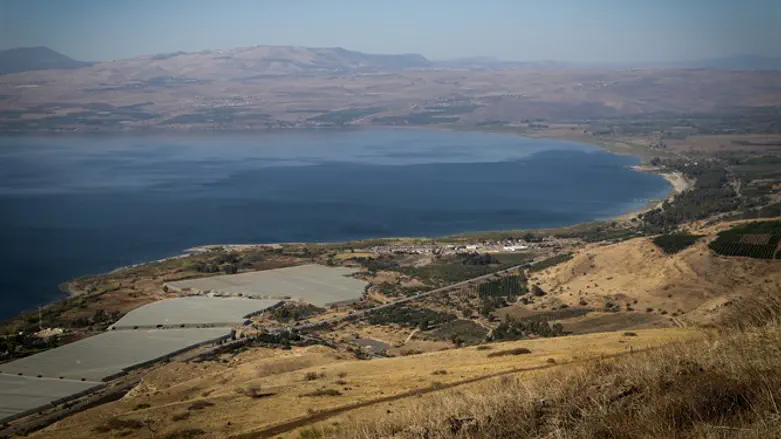
There is growing concern within the Israel Water Authority, the governmental body charged with regulating the country’s water resources, over the continuing decline of the Kinneret – also known as the Sea of Galilee – Israel’s primary reservoir.
Because of an ongoing drought that’s brought the Kinneret to record lows, the Israel Water Authority has almost completely halted pumping of water out of the country’s largest freshwater lake, relying instead solely on pumping from underground aquifers and desalination plants..
Despite this move, however, officials warn that the amount of water in the Kinneret has continued to plummet, raising the possibility of serious ecological damage to the lake.
“The Kinneret is now 12 centimeters (4.7 inches) below the lower marker, and we’ve been barely pumping water,” said Uri Shor, a spokesman for the Water Authority. “But despite this, last month we hit a new low in terms of available water. That means that the difference between the amount of water flowing in from rivers and springs versus the amount evaporating is at a level we haven’t seen since 1920.”
While the Water Authority has pushed for the construction of a new desalination plant in northern Israel to help reduce the area’s reliance on the Kinneret, there has been significant pushback from residents.
“There’s no question that we need to think about alternative water sources, and of course to reduce waste. A desalination plant needs to be built in order to strengthen the northern region, and one has been planned in the Western Galilee, but residents opposed it going up in their area, which means we’re looking at a serious shortage of water for farmers in the north.”
The north, continued Shor, was suffering the worst effects of a drought that has spanned four years.
“We’re after four years of drought in the north, which is extraordinary; we’ve never seen the north so dry. We’re used to the north being blessed by rains and the south being arid – so we built the [water] carrier in the north, but now things have reversed.”